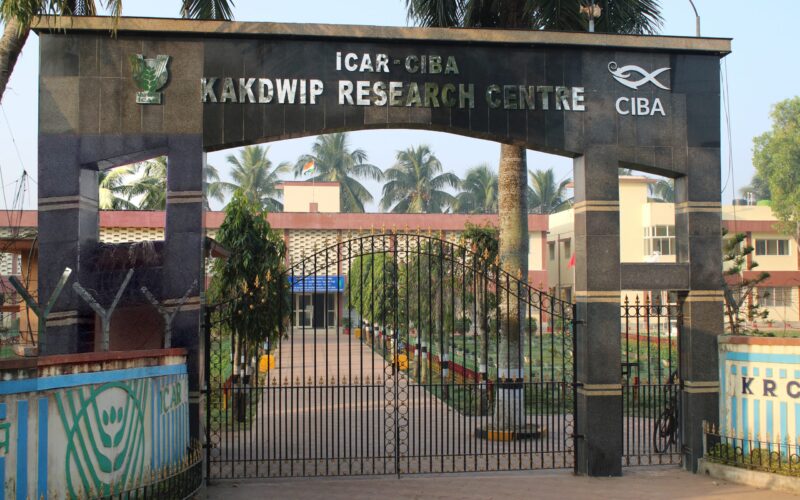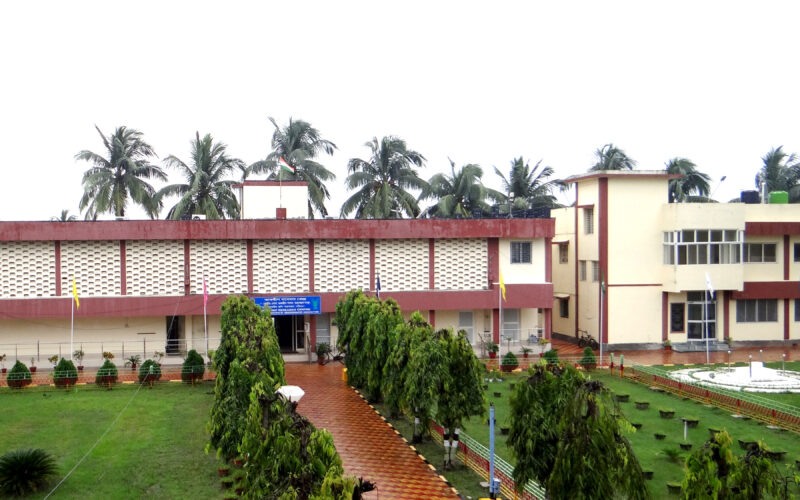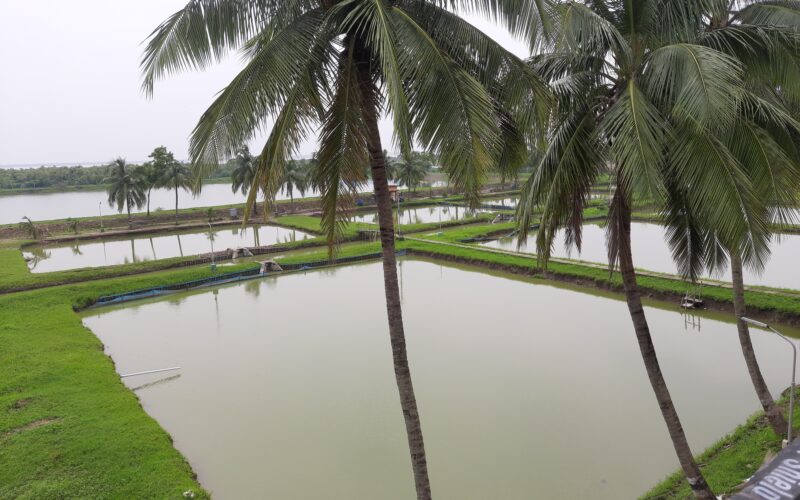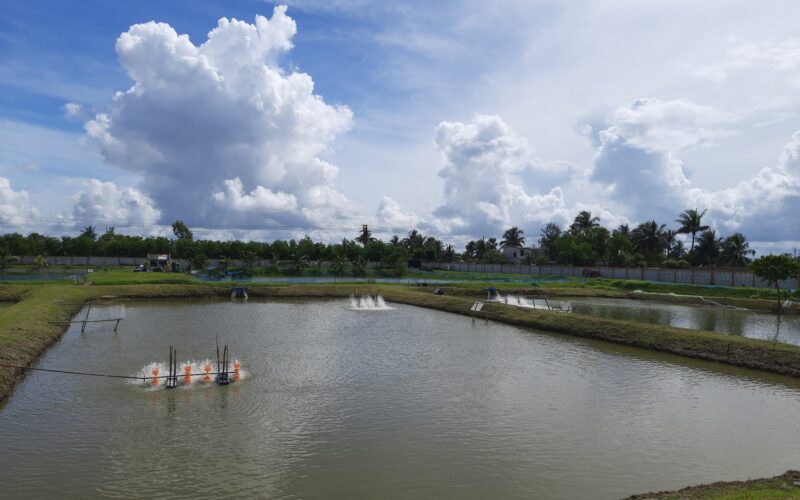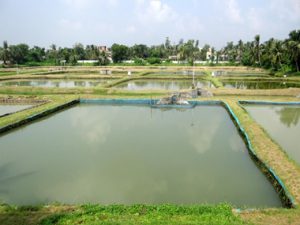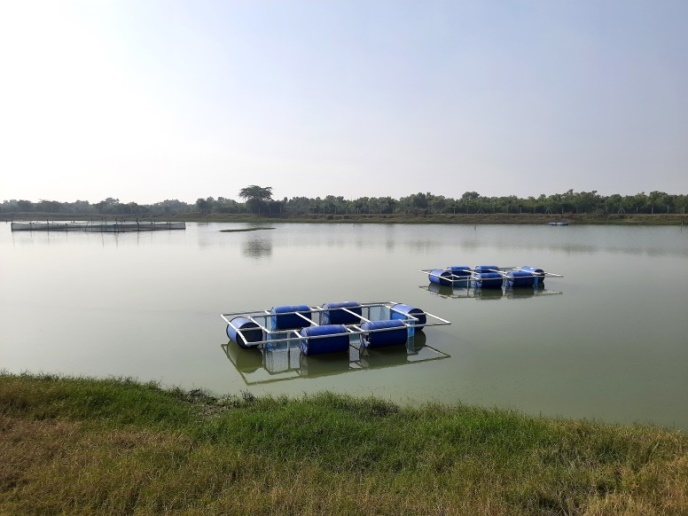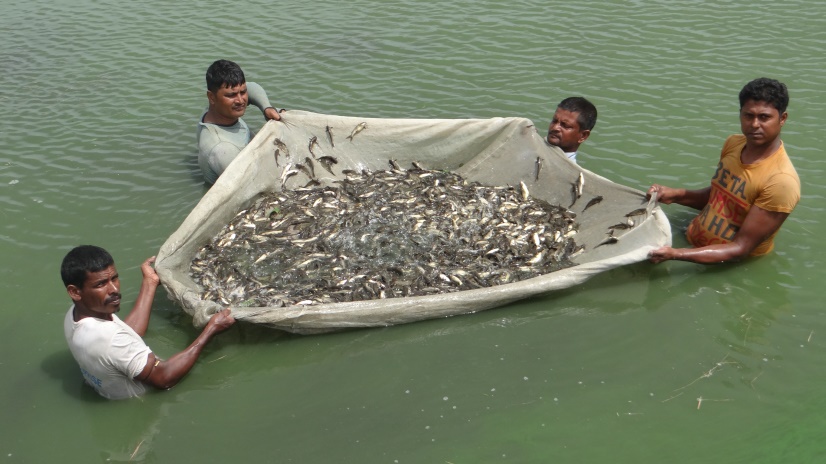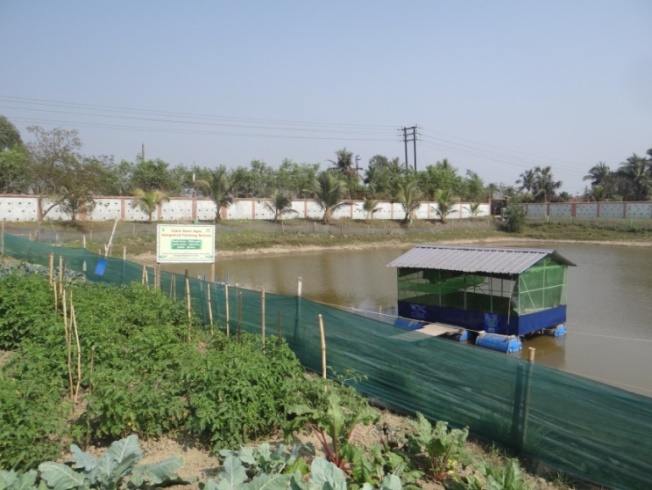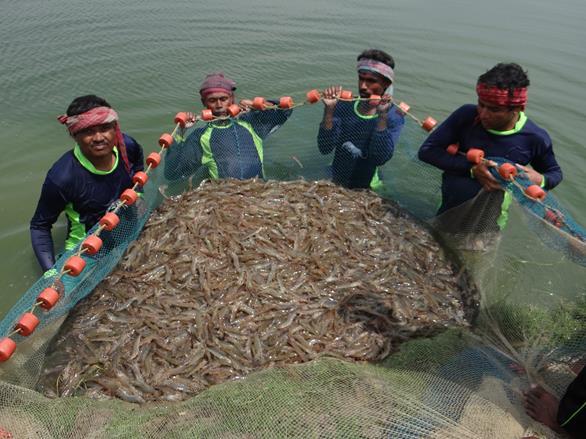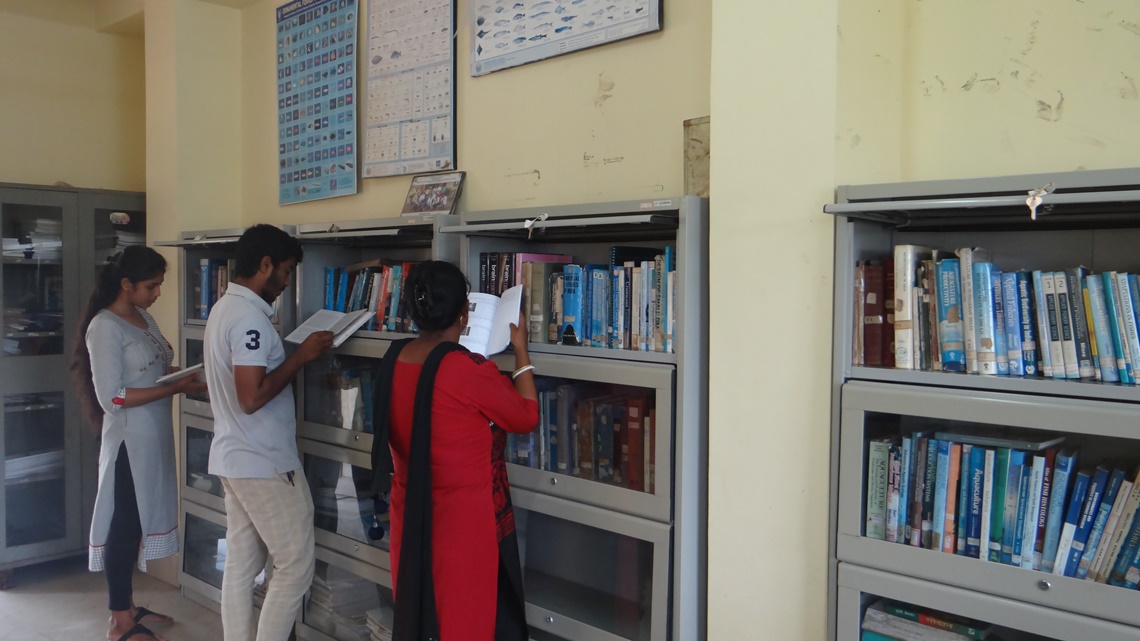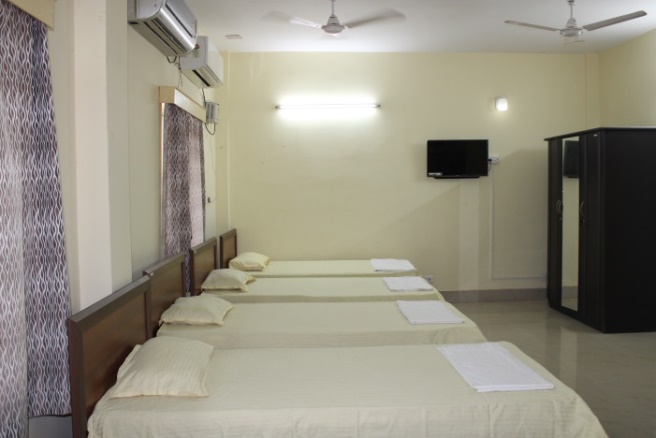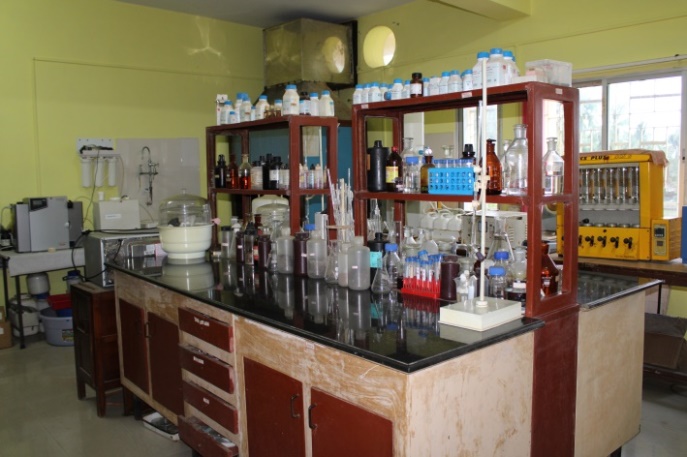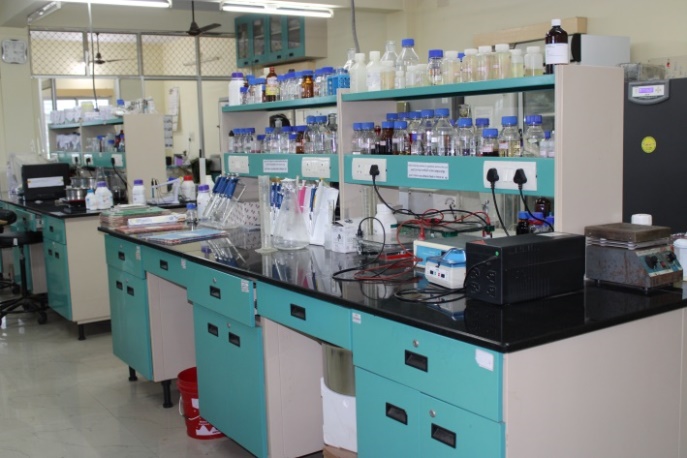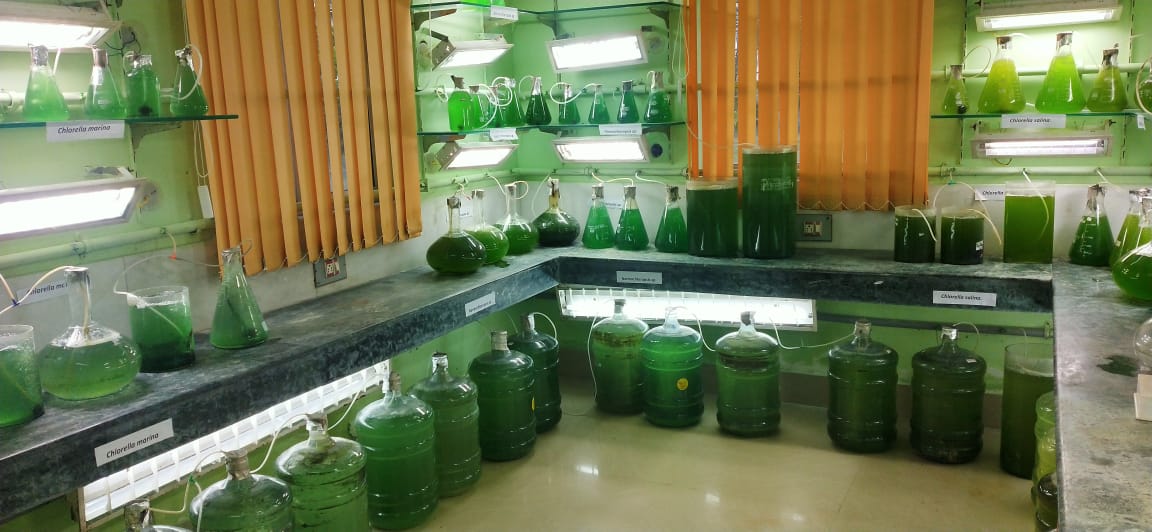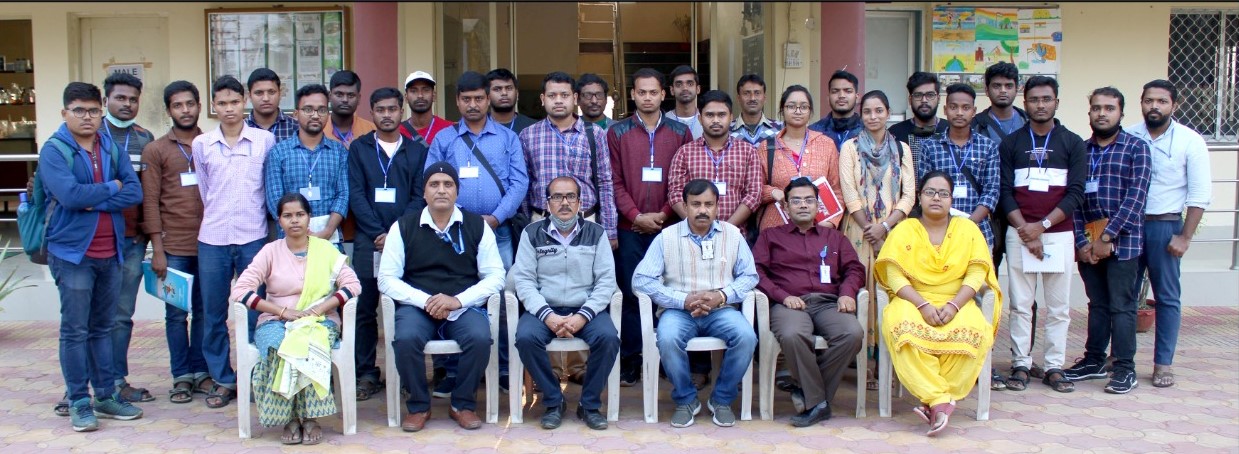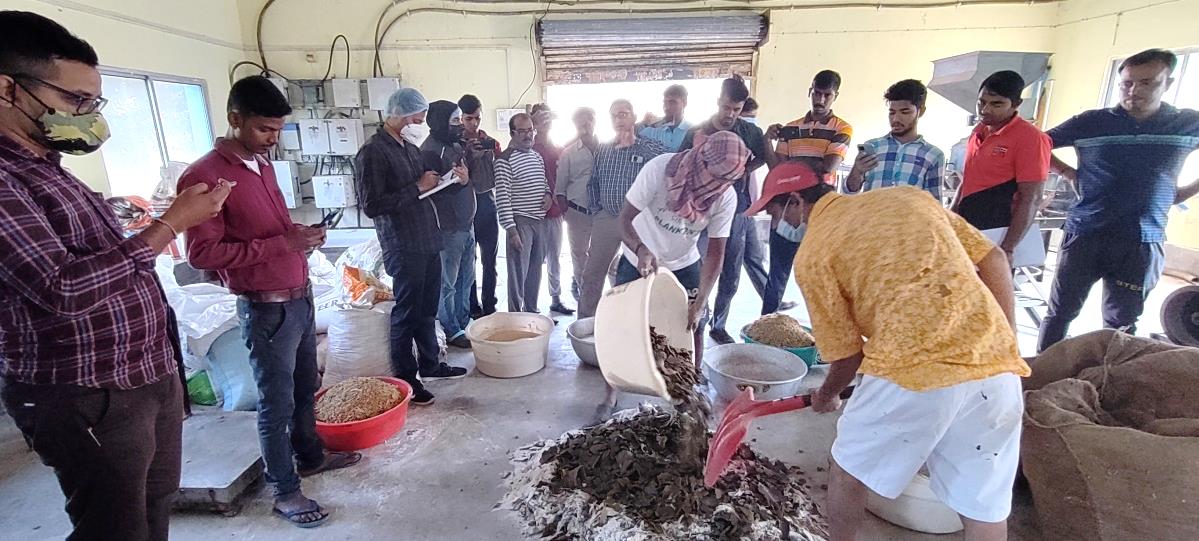GENESIS
The Kakdwip Research Centre (KRC) came into existence in the year 1968 as a brackishwater experimental fish farm under the Central Inland Fisheries Research Institute (CIFRI), Barrackpore, Later, on 1st April 1987, it was brought under the aegis of ICAR- Central Institute of Brackishwater Aquaculture (CIBA), Chennai to facilitate research and provide technological support to the growing brackishwater aquaculture sector of the country. KRC has completed 54 glorious years in serving the brackishwater sector of the nation. The centre has scientific, administrative and technical manpower, well-developed farm facilities and well equipped laboratories to cater the needs of brackishwater aquaculture research, training (HRD), outreach and demonstration.
LOCATION OF THE CENTRE
Kakdwip Research Centre (KRC) is situated at Kakdwip between two tributaries Muriganga and Kalnagini of the sacred river Ganga in the natural scenic beauty of Sundarban (21º 51’ 28.8” N, 88º 11’ 1.9”). The place Kakdwip is also known for providing the gateway to the internationally famous pilgrimage center, Gangasagar.
KRC is well connected by road, rail and air communication facilities to the rest of the Country. Netaji Subhash Chandra Bose International Airport, Kolkata is 130 Km away from the centre. By car, this centre is approximately 3 hour’s drive from Howrah station, the main railway terminus for the Kolkata metropolitan city. Kakdwip is connected by the local suburban train route between Sealdah and Namkhana, with a railway station located at Kakdwip. Frequent bus services are also available from Dharmatala (Esplanade), Kolkata to Kakdwip through NH 117.
INFRASTRUCTURE
KRC campus comprises of around 17.99 ha total area. The farm facility consists of 42 experimental ponds and 9 nursery ponds with combined water spread area of 10 ha. The office infrastructure comprises of office buildings, laboratories, live feed culture unit, modern feed mill, challenge shed, experimental yards, recirculatory aquaculture system (RAS), power sub-station staff quarters (type IV – 2 nos; type III – 8 nos; type II – 4 nos; type I – 12 nos.) and a trainees hostel.
Research Farm Facilities:
The farm facilities are divided into three sectors.
Sector A: This is the oldest farm sector of KRC and was developed during 1968 during the CIFRI regime. The total area of this sector is around 7.13 ha. There are 22 ponds with sizes ranging from 0.06 to 0.15 ha covering a total water spread area of around 1.95 ha. In addition to this recently, one bhery with approx. area of 2.9 ha has been renovated for modern brackishwater aquaculture facilities with a combination of pond culture along with a cage and pen culture.
Sector B: Total area of this sector is around 4.845 ha. This sector was developed in 1984. It has 8 ponds with area ranging from 0.11 to 0.41 ha covering a total water area of around 1.95 ha.
Sector C: This sector has a total area of 4.722 ha and was developed as a model integrated brackishwater farm with 11 ponds including two reservoir ponds. Size of the ponds is ranging from 0.15 to 0.65 ha. In addition to these, this sector also has 9 small nursery rearing ponds with each having area of approximately 40 square meters. The total water spread area of this sector is around 3.2 ha.
Library facility: The library at Kakdwip Research Centre of ICAR-CIBA is an important referral center for Fisheries and allied sciences. It has a rich collection of referral books, periodicals, and scientific magazines on various subjects of fish and fisheries sciences viz. Aquaculture, fish biology, fish nutrition, fish physiology, fish pathology, oceanography, taxonomy, soil and water chemistry and fisheries extension. Apart from these scientific books and magazines, the library is enriched with Hindi books and magazines.
Around 450 books on different aspects have been purchased, classified, cataloged and kept in a different sections of the library. There are national and international journals, magazines and periodicals that are being subscribed to the library. Library provides physical access to knowledge-building materials of referral books, periodicals, scientific magazines, CIBA news, CIBA annual reports and newspapers to scientists, research scholars, college faculties, stakeholders and farmers. The library is accessible on working days from 10:00 AM to 5:00 PM.
Trainees Hostel: KRC has a well-furnished trainee’s hostel named ‘Hilsa Trainees Hostel’ with an attached cafeteria. The guest house has one Executive room and a dormitory, which can accommodate six trainees. Both the room and dormitory of the trainee’s hostel are air-conditioned. Apart from this, the accommodation of trainees is also provided in a few designated rooms of Type I and III quarter of the campus with nominal charges.
Click here to know more details about Hilsa Trainee’s Hostel
Laboratory facilities: KRC houses three state-of-the-art well-equipped research laboratories viz. Aquaculture laboratory, Health & Reproductive biology Laboratory and Nutrition laboratory with all modern sophisticated equipment and research facilities.
Feed mill: The centre also has a modern feed mill with a production facility for compressed pellet and extruded pellet for fish and shrimp. The production capacity of pellet mill is 1.0 ton feed per hour.
Live feed culture unit: The centre possesses one live-feed culture unit with stock culture preservation and mass culture production of different algal species, which are usually used as live feed of fish.
Other facilities: The centre is also equipped with a seminar hall for hosting seminars, meetings, etc. The farm and office infrastructure also consist of two high-capacity generators, and a dedicated electrical sub-station with a sophisticated transformer. The centre also has a well-equipped recirculatory aquaculture system (RAS) for captive maturation of finfish and challenge shed for studying disease causing microorganisms.
Human Resource Development (HRD): The centre regularly hosts training programme for brackishwater farmers, farm technicians, aquaculture students and other stakeholders in the field of basic brackishwater aquaculture, nutrition & feed development, brackishwater fish disease management and breeding and seed production. In past, the centre also organized training programme sponsored by different agencies e.g. NFDB for the brackishwater farmers. During COVID- 19 pandemic, KRC also hosted training programme through online mode keeping the safety norms in view. Recently the centre organized four training programmes in the different field of brackishwater aquaculture. The centre provides the opportunity to research scholars of different universities to complete their research projects in fulfillment of their Masters and Doctoral degree. In addition, several need based trainings were conducted to students, farmers and other stakeholders in the country. The centre also undertakes livelihood enhancement programs for coastal tribal and scheduled communities. Every year the centre organizes demonstration of different institute technologies and farmers awareness programme on different aspect of brackishwater aquaculture. As a part of celebration of Azadi Ka Amrit Mahotsav the centre organized a Farmer’s meet cum harvest mela on 10th November, 2021 involving more than 250 participants from diverse professional background including farmers from Sagar island, Namkhana, Pathar Pratima and Kakdwip, bankers, and young entrepreneurs, women SHG’s and state government officials. Hon’ble minister of Sundarban affairs, Govt. of West Bengal Shri Bankim Chandra Hazra inaugurated the farmer’s meet as chief guest.
Research Highlights of the Centre
KRC conducts basic, strategic and applied research on all fields of brackishwater aquaculture including all culture aspects, nutrition & feed development, disease management, fish breeding & reproduction to cater the need of the brackishwater aquaculture of the country with special reference to Sundarban area. Major notable areas of research include zero water-exchange based shrimp culture, development of low cost feed for polyculture, development of culture technique of hilsa in brackishwater pond system, development of breeding techniques for different brackishwater finfish, isolation & preservation of beneficial bacteria for probiotic development, surveillance of brackishwater aquaculture diseases of West Bengal and Odisha, development of aquaculture products from fish waste, culture of brackishwater ornamental fish, etc. In this context, it is worth mentioned that this is the only place, where hilsa is cultured in brackishwater pond system.
Technology developed:
- Biosecured zero water exchange shrimp (Penaeus monodon, P. indicus and vannamei) farming technology.
- Low cost low input farming of shrimp based on organic techniques.
- Packages for nursery and grow-out culture of mud crabs (Scylla)
- Monoculture and polyculture grow out technology for milkfish, mullets and pearlspot.
- Development of model of integrated multitrophic farming by scientific combination of brackishwater aquaculture with animal husbandry and horticulture.
- Package of practice of grow-out culture and reproductive maturation of Indian shad (hilsa) (Tenualosa ilisha).
- Development of cost effective polyculture feed (PolyPlus)
- Development of PlanktonPlus, a plankton booster, from the fishwate.
- Consortiaum of Lactic acid bacteria (LAB) capable of inhibition of pathogenic Vibrio of fish and shrimp.
- Development of breeding technique of Mystus gulio.
Click here for Profile Document
For further details please contact
The Officer-in-Charge,
ICAR – CIBA Kakdwip Research Centre,
South 24 Parganas District
Kakdwip, West Bengal 743 347
Phone: +91-03210-255072
Fax: +91-03210-255072
E-mail: krckakdwip@yahoo.co.in
